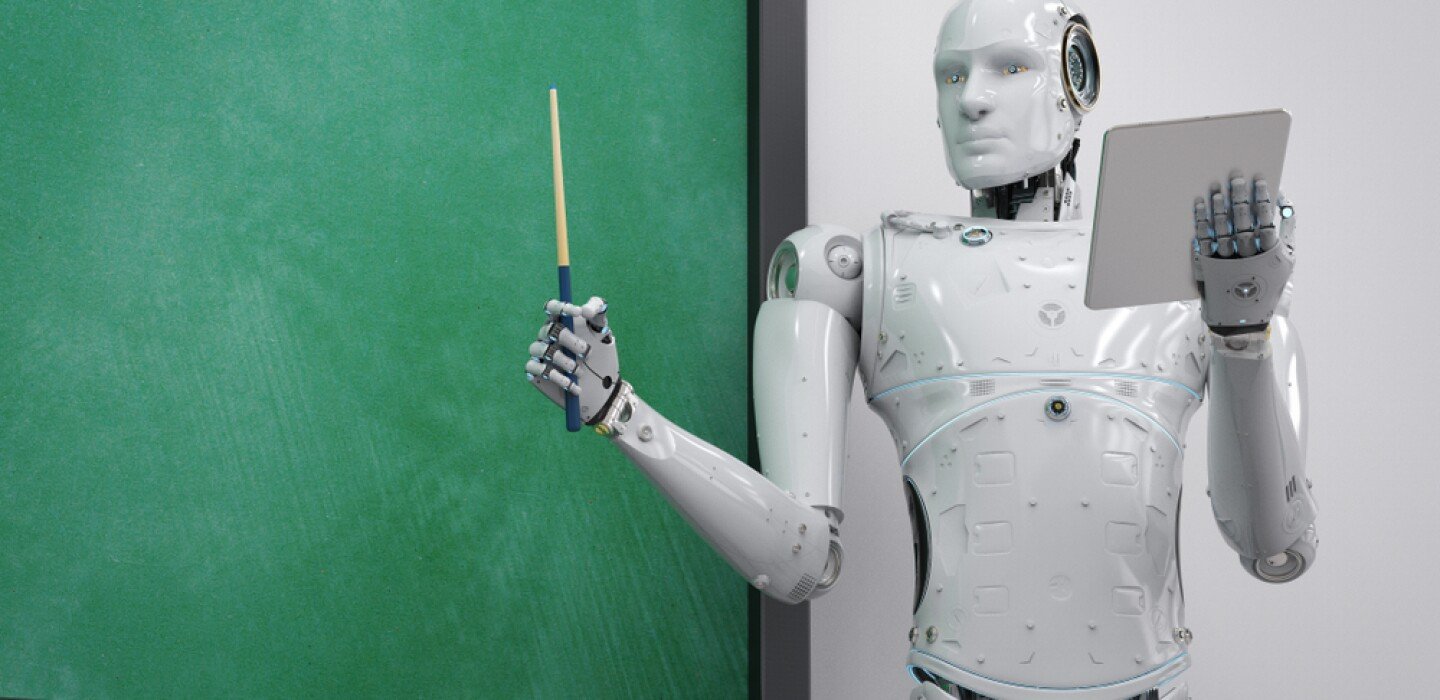AI Insights
Futurist Adam Dorr on how robots will take our jobs: ‘We don’t have long to get ready – it’s going to be tumultuous’ | Artificial intelligence (AI)

If Adam Dorr is correct, robots and artificial intelligence will dominate the global economy within a generation and put virtually the entire human race out of a job. The social scientist doubles up as a futurist and has a stark vision of the scale, speed and unstoppability of a technological transformation that he says will replace virtually all human labour within 20 years.
Dorr heads a team of researchers who have studied patterns of technological change over millennia and concluded that the current wave will not just convulse but obliterate the labour market by 2045. What cars did to horses and carts, and electricity to gas lamps, and digital cameras to Kodak, are templates for the coming shock, he says. “Technology has a new target in its crosshairs – and that’s us. That’s our labour.”
Whatever you do in whatever sector, within a generation machines will be able to perform the same task just as well, if not better, and for a fraction of the cost, says Dorr. “Costs are improving consistently, capabilities are improving consistently. We’ve seen that pattern before. If I can get the same thing or better for the same or lower cost, switching is a no-brainer. We’re the horses, we’re the film cameras.”
Dorr, 48, is a technology theorist with a PhD in public affairs from the University of California, Los Angeles, and is the director of research at RethinkX, a US-registered nonprofit that analyses and forecasts technological disruption. It was founded and is largely funded by James Arbib and Tony Seba, technology entrepreneurs and investors.
Dorr spoke to the Guardian on a visit to Ireland, where he addressed the Dargan Forum, a two-day gathering in Dún Laoghaire, south Dublin, that focused on green and digital transitions.
Dorr combined an ominous prediction – humanoid robots powered by increasingly capable artificial intelligence will spread across virtually every industry, leaving humans unable to compete – with a jarring blast of optimism: handled well, this revolution will usher in “super-abundance” that will liberate humanity. But handled badly, new extremes of inequality and oligarchy beckon.
The transition will be faster than most people think, says Dorr. “We’ve documented 1,500-plus technological transformations across all of human history. Through the theoretical lens that we’ve developed, a consistent set of patterns emerge over and over and over again.”
Once a new technology captures just a few percentage points of “mind share or market share”, it tends to acquire overwhelming dominance within 15 to 20 years, which according to Dorr, means robots and AI will soon make human labour all but obsolete.
“Machines that can think are here, and their capabilities are expanding day by day with no end in sight. We don’t have that long to get ready for this. We know it’s going to be tumultuous.”
Some sectors will have an interregnum during which humans can work effectively alongside robots – just like the period when chess grandmasters teamed up with chess programs – but sooner rather than later humans will just be in the way, says Dorr.
Jobs whose value depend on human input – such as sports coaches, politicians, sex workers, ethicists – will endure but even they will face competition from machines. “There will remain a niche for human labour in some domains. The problem is that there are nowhere near enough of those occupations to employ 4 billion people.”
after newsletter promotion
Venerable institutions and practices may no longer be fit for purpose, so societies need to urgently prepare by devising a set of guiding principles and re-evaluating concepts such as value, price and distribution, says Dorr. “I don’t have the answers. We don’t even know if we have the right questions. We need to experiment now and try out new ownership structures, new stakeholder structures.”
He has written a book, Brighter: Optimism, Progress and the Future of Environmentalism, that is a paean to clean energy and hope. He acknowledges the perils of economic dislocation, populist backlash and misinformation but says that is not inevitable. Gains in productivity and abundance will be vast and distribution – for instance, by emulating the example open source software – could be fair. “This could be one of the most amazing things to ever happen to humanity.”
Previous futurists have predicted eras of leisure and been spectacularly wrong but Dorr says this time it really will happen and the tiny portion of society who in the past did not need to work, such as aristocrats, will offer guidance on how to fill the time.
“We can think of examples of spoiled rich brats who seemed sort of aimless and perhaps miserable but others were able to live meaningful, purposeful lives. I think we will find meaning in our relationships with our friends and family and our connections to our communities. It sounds sappy but I think it’s deeply true.”
AI Insights
General Counsel’s Job Changing as More Companies Adopt AI

The general counsel’s role is evolving to include more conversations around policy and business direction, as more companies deploy artificial intelligence, panelists at a University of California Berkeley conference said Thursday.
“We are not just lawyers anymore. We are driving a lot of the policy conversations, the business conversations, because of the geopolitical issues going on and because of the regulatory, or lack thereof, framework for products and services,” said Lauren Lennon, general counsel at Scale AI, a company that uses data to train AI systems.
Scattered regulation and fraying international alliances are also redefining the general counsel’s job, panelists …
AI Insights
California bill regulating companion chatbots advances to Senate

The California State Assembly approved legislation Tuesday that would place new safeguards on artificial intelligence-powered chatbots to better protect children and other vulnerable users.
Introduced in July by state Sen. Steve Padilla, Senate Bill 243 requires companies that operate chatbots marketed as “companions” to avoid exposing minors to sexual content, regularly remind users that they are speaking to an AI and not a person, as well as disclose that chatbots may not be appropriate for minors.
The bill passed the Assembly with bipartisan support and now heads to California’s Senate for a final vote.
“As we strive for innovation, we cannot forget our responsibility to protect the most vulnerable among us,” Padilla said in statement. “Safety must be at the heart of all developments around this rapidly changing technology. Big Tech has proven time and again, they cannot be trusted to police themselves.”
The push for regulation comes as tragic instances of minors harmed by chatbot interactions have made national headlines. Last year, Adam Raine, a teenager in California, died by suicide after allegedly being encouraged by OpenAI’s chatbot, ChatGPT. In Florida, 14-year-old Sewell Setzer formed an emotional relationship with a chatbot on the platform Character.ai before taking his own life.
A March study by the MIT Media Lab examining the relationship between AI chatbots and loneliness found that higher daily usage correlated with increased loneliness, dependence and “problematic” use, a term that researchers used to characterize addiction to using chatbots. The study revealed that companion chatbots can be more addictive than social media, due to their ability to figure out what users want to hear and provide that feedback.
Setzer’s mother, Megan Garcia, and Raine’s parents have filed separate lawsuits against Character.ai and OpenAI, alleging that the chatbots’ addictive and reward-based features did nothing to intervene when both teens expressed thoughts of self-harm.
The California legislation also mandates companies program AI chatbots to respond to signs of suicidal thoughts or self-harm, including directing users to crisis hotlines, and requires annual reporting on how the bots affect users’ mental health. The bill allows families to pursue legal action against companies that fail to comply.
AI Insights
AI a 'Game Changer' for Assistance, Q&As in NJ Classrooms – GovTech
-

 Business2 weeks ago
Business2 weeks agoThe Guardian view on Trump and the Fed: independence is no substitute for accountability | Editorial
-
Tools & Platforms1 month ago
Building Trust in Military AI Starts with Opening the Black Box – War on the Rocks
-

 Ethics & Policy2 months ago
Ethics & Policy2 months agoSDAIA Supports Saudi Arabia’s Leadership in Shaping Global AI Ethics, Policy, and Research – وكالة الأنباء السعودية
-

 Events & Conferences4 months ago
Events & Conferences4 months agoJourney to 1000 models: Scaling Instagram’s recommendation system
-

 Jobs & Careers2 months ago
Jobs & Careers2 months agoMumbai-based Perplexity Alternative Has 60k+ Users Without Funding
-

 Podcasts & Talks2 months ago
Podcasts & Talks2 months agoHappy 4th of July! 🎆 Made with Veo 3 in Gemini
-

 Education2 months ago
Education2 months agoVEX Robotics launches AI-powered classroom robotics system
-

 Education2 months ago
Education2 months agoMacron says UK and France have duty to tackle illegal migration ‘with humanity, solidarity and firmness’ – UK politics live | Politics
-

 Funding & Business2 months ago
Funding & Business2 months agoKayak and Expedia race to build AI travel agents that turn social posts into itineraries
-

 Podcasts & Talks2 months ago
Podcasts & Talks2 months agoOpenAI 🤝 @teamganassi


